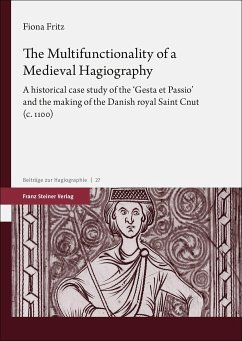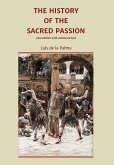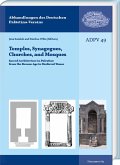The 'Gesta et Passio' is a Latin hagiographic text written around 1112 by Ælnoth of Canterbury about the Danish king Cnut who was killed in 1086 and later venerated as St Cnut.Due to its textual complexity Ælnoth's work has been considered heterogeneous and strangely structured. With her study Fiona Fritz aims to show that this complexity reflects the systematic multifunctionality of the text and that the text's construction afforded Ælnoth the opportunity to express his perception of contemporaneous ecclesiastical and secular political matters. Relevant textual functions include the construction of Cnut as a royal saint, propagating the cult of St Cnut, furthering ecclesiastical interests, presenting an ideology of kingship, and enhancing the legitimacy of the ruling dynasty.The analysis of the text considers both the historical context of its production and various textual moves and strategies employed by the author. Over and above the results attained in relation to the 'Gestaet Passio' as an individual text, the present study can be taken as a general exploration of methods for the analysis of the potential of hagiographical texts for various functions and for multifunctionality.








